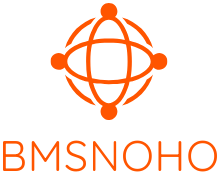Table of Contents
ToggleIn a world where medical advancements seem to pop up faster than a game of Whac-A-Mole, global medical affairs stands as the unsung hero behind the scenes. It’s the glue that holds together the intricate web of research, regulations, and real-world applications, ensuring that groundbreaking treatments reach those who need them most. Think of it as the ultimate translator between science and the everyday patient, making sure everyone speaks the same language—even if that language is a bit heavy on the jargon.
As healthcare continues to evolve, the role of global medical affairs becomes increasingly vital. It’s not just about crunching numbers or drafting reports; it’s about shaping the future of medicine through collaboration, education, and a dash of humor to lighten the mood. So buckle up as we dive into the fascinating world of global medical affairs, where every detail counts and laughter is just as important as data.
Understanding Global Medical Affairs
Global medical affairs serves as a critical component in healthcare. It bridges research, regulatory frameworks, and practical medical applications.
Definition and Scope
Global medical affairs encompasses various functions within the pharmaceutical and biotechnology industries. It includes gathering and analyzing data, developing communication strategies, and informing healthcare professionals. Additionally, this field involves compliance with legal regulations and ethical standards. Medical affairs teams guide product development throughout its lifecycle, ensuring a focus on patient safety and effective treatment. They also lend support in exchange for scientific and clinical insights, thus promoting informed decision-making.
Importance in the Healthcare Ecosystem
Global medical affairs plays a vital role in the healthcare ecosystem. It facilitates the dissemination of accurate information to healthcare providers and patients. Through education, professionals gain a greater understanding of complex medical data, enhancing patient care. This field fosters collaboration between different stakeholders, including regulatory bodies and clinical researchers. Engagement in scientific discussions influences medical guidelines and treatment protocols. Effective communication further strengthens trust between pharmaceutical companies and healthcare providers, ultimately improving patient outcomes.
Role of Global Medical Affairs in Pharma

Global medical affairs serves as a pivotal component in pharmaceutical development, intertwining research, compliance, and communication.
Key Responsibilities
Global medical affairs teams manage several critical responsibilities. They facilitate the exchange of scientific information among stakeholders. Data analysis plays a key role in evaluating clinical trial results and real-world evidence, supporting informed decision-making. Communication strategy development ensures that accurate, clear messaging reaches healthcare professionals and patients. Compliance with rigorous legal and ethical standards is paramount, protecting both the company and its stakeholders. Adverse event reporting further enhances patient safety and supports regulatory adherence throughout the product lifecycle. Engaging with healthcare providers allows for continuous feedback, ensuring evolving needs are met and addressed appropriately.
Collaboration with Other Departments
Collaboration between global medical affairs and other departments enhances efficiency across the organization. Cross-functional teams engage with research and development to align clinical objectives with therapeutic goals. Coordination with marketing ensures consistency in messaging and adherence to compliance standards. Input from regulatory affairs is essential for navigating complex approval processes. Partnerships with commercial teams optimize communication strategies, translating data into actionable insights. Establishing ties with pharmacovigilance strengthens the focus on patient safety and risk management. This interconnected approach fosters a culture of collaboration, ultimately benefiting all stakeholders involved.
Strategies for Effective Global Medical Affairs
Effective strategies in global medical affairs strengthen the connection between research, regulatory compliance, and clinical application. Prioritizing collaboration and communication enables successful execution of these strategies.
Data-Driven Decision Making
Data-driven decision making forms the backbone of global medical affairs. Utilizing real-world evidence enhances the evaluation of clinical trial results, resulting in informed strategies. Stakeholders benefit from insights generated through comprehensive data analysis. Continuous monitoring of data trends helps identify areas for improvement. Applying a systematic approach ensures adherence to legal and ethical standards while enhancing patient safety. Medical affairs teams leverage analytics to influence effective treatment strategies and optimize patient outcomes.
Engaging with Healthcare Professionals
Engaging with healthcare professionals fosters trust and facilitates knowledge transfer. Establishing relationships with physicians and key opinion leaders enhances communication pathways. Sharing evidence-based information ensures healthcare professionals are equipped with the latest developments. Interactive educational programs can deepen understanding of complex medical concepts. Engaging in regular, open dialogue allows for feedback that can guide the adaptation of strategies. Prioritizing these relationships cultivates collaborative efforts, ultimately advancing patient well-being.
Challenges in Global Medical Affairs
Global medical affairs faces several challenges that impact its effectiveness. Navigating regulatory compliance proves especially complex, varying significantly across regions. Each country enforces distinct guidelines and standards. Medical affairs teams must stay updated on these regulations to ensure adherence. Non-compliance can compromise patient safety and result in legal consequences. Therefore, continuous education and vigilance are crucial.
Managing diverse stakeholder expectations is another significant challenge. Stakeholders include healthcare professionals, regulatory authorities, and patients, each with unique needs. Ensuring clear communication fosters understanding among these varied groups. Misalignment can lead to conflicts, impacting research and product development timelines. Engaging stakeholders through regular interaction and feedback helps align priorities. Establishing trust with all parties is essential for successful collaboration.
Future Trends in Global Medical Affairs
Future trends in global medical affairs indicate significant advancements in technology and patient engagement. These developments shape the landscape of healthcare delivery and enhance collaborative efforts among stakeholders.
Integration of Technology
Technological advancements drive significant changes in global medical affairs. Digital tools enable efficient data collection, analysis, and dissemination of information. Artificial intelligence streamlines the evaluation of clinical trials and real-world evidence, enhancing decision-making processes. Data analytics platforms allow teams to extract valuable insights, improving communication strategies. Moreover, virtual simulations and telehealth applications provide healthcare professionals with immediate access to scientific information. This integration not only fosters timely engagement but also strengthens relationships with healthcare providers.
Evolving Role in Patient-Centric Care
Patient-centric care becomes more essential as global medical affairs evolves. Medical affairs teams now prioritize patient engagement to enhance treatment outcomes. Understanding patient needs encourages tailored education and support initiatives. Active collaboration with healthcare professionals ensures timely access to evidence-based information for patients. Furthermore, involving patients in clinical trial designs enhances their perspectives throughout research processes. This shift ultimately promotes safety, satisfaction, and adherence to treatment plans, solidifying the role of medical affairs in advancing patient care.
Global medical affairs stands at the intersection of science and patient care. Its role in fostering collaboration and ensuring compliance is vital for advancing healthcare. As the landscape evolves with technology and patient engagement, medical affairs teams must adapt to meet new challenges. Their commitment to data-driven decision-making and effective communication strengthens the connection between research and real-world application. By prioritizing patient safety and engagement, global medical affairs is poised to enhance treatment outcomes and shape the future of medicine. This dynamic field continues to play a crucial part in improving healthcare delivery and ensuring that patients receive the best possible care.







